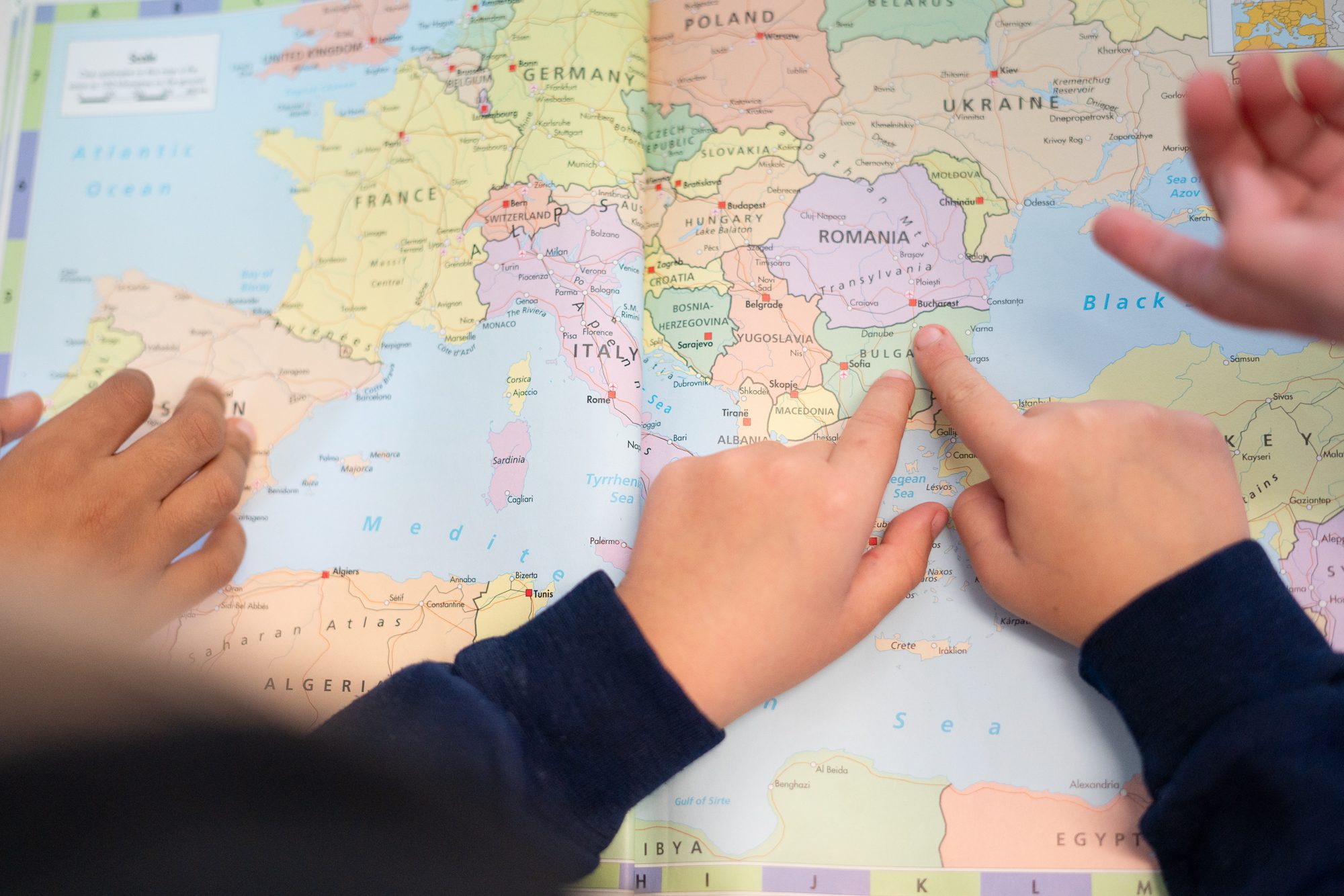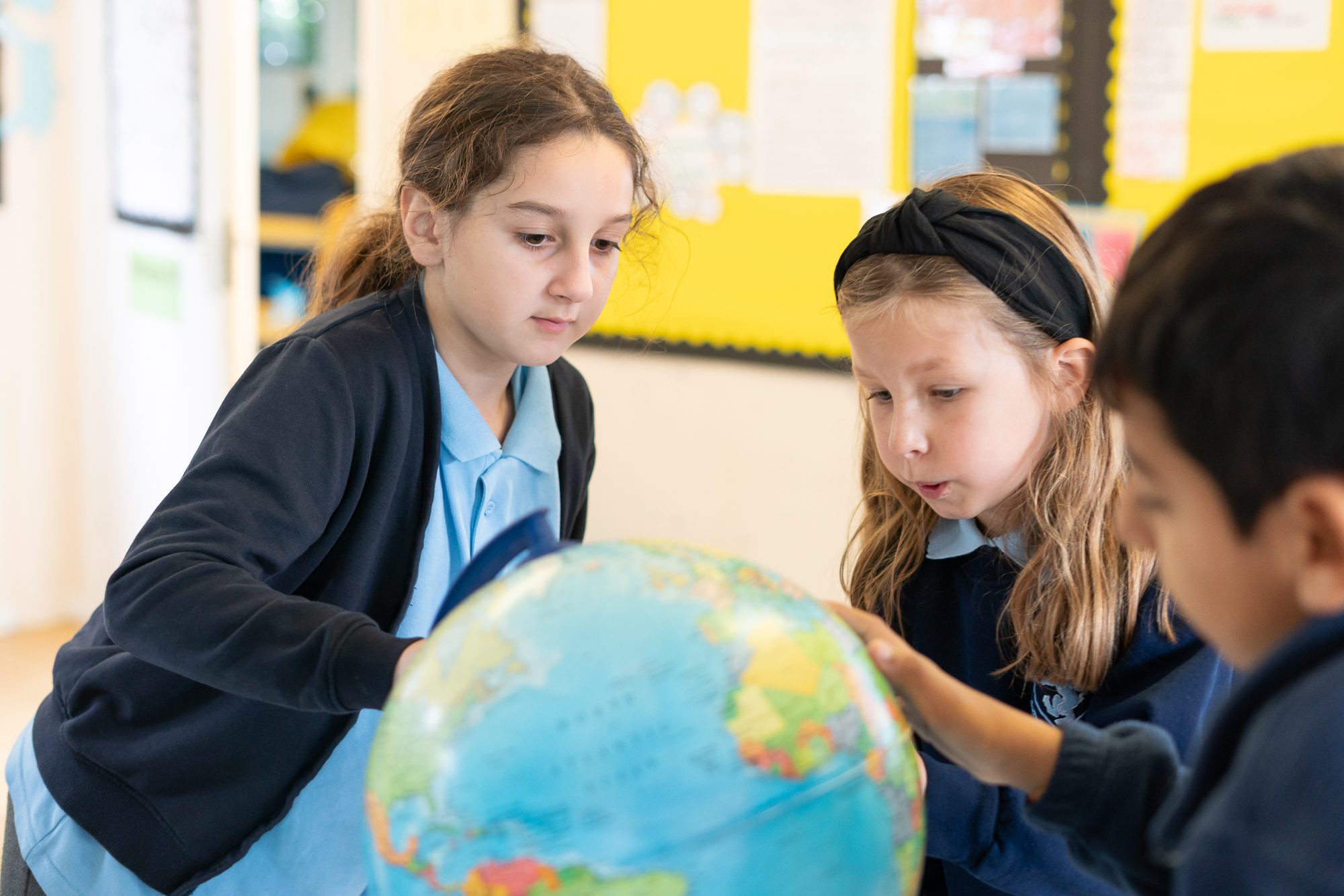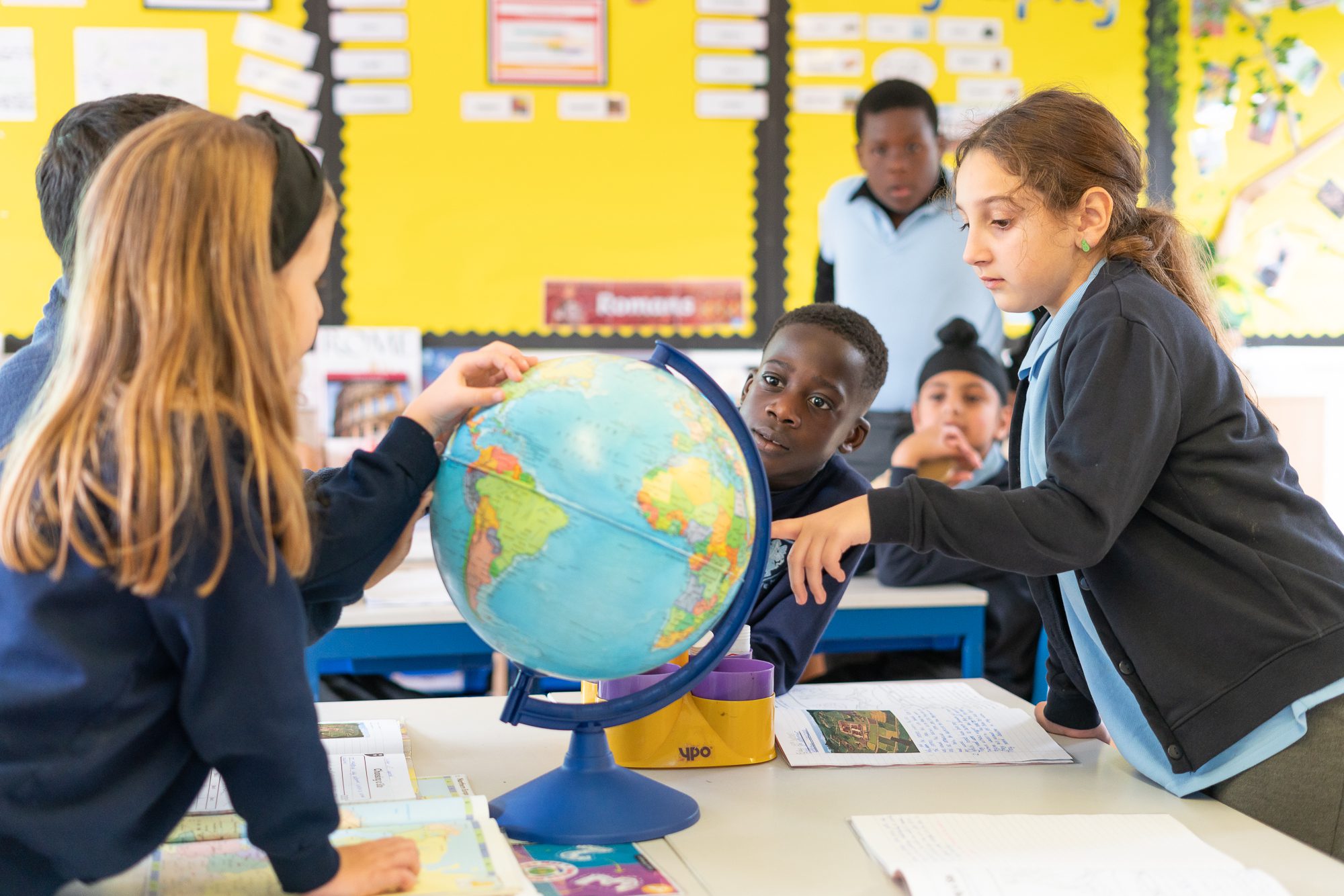Geography Subject Leader: Mrs S Cole
Intent
To develop an understanding of human and physical geography in order to create awareness of their local and global surroundings through a careful progression of skills. Children will be able to use a range of resources to draw conclusions about how the earth has developed and changed over time.
The National Curriculum for Geography aims to ensure that all pupils:
- Develop contextual knowledge of the location of globally significant places – both terrestrial and marine – including their defining physical and human characteristics and how these provide a geographical context for understanding the actions of processes
- Understand the processes that give rise to key physical and human geographical features of the world, how these are interdependent and how they bring about spatial variation and change over time
- Are competent in the geographical skills needed to: collect, analyse and communicate with a range of data gathered through experiences of fieldwork that deepen their understanding of geographical processes
- Interpret a range of sources of geographical information, including maps, diagrams, globes, aerial photographs and Geographical Information Systems (GIS)
- Communicate geographical information in a variety of ways, including through maps, numerical and quantitative skills and writing at length.


Implementation
At Rosherville we have designed our geography curriculum to provide children with a knowledge and understanding of their local area, the United Kingdom and the wider world enabling them to make connections with other curriculum areas and acquire skills for later life.
Our Geography curriculum has been designed to inspire in pupils a curiosity, fascination, awe and wonder about the world and the people that live in it, which will remain with them for the rest of their lives. We believe that our Geography curriculum is fundamental in broadening our pupils’ experiences, and their understanding of the wonders of our world and giving them a broader knowledge that they can draw upon to help them achieve in other subjects and throughout their lives. Teaching equips children with knowledge about diverse places, people, resources and natural and human environments, together with a deep understanding of the Earth’s key physical and human processes. As children progress, their growing knowledge about the world helps them to deepen their understanding of the interaction between physical and human processes, and of the formation and use of landscapes and environments. Geographical knowledge, understanding and skills provide the frameworks and approaches that explain how the Earth’s features at different scales are shaped, interconnected and change over time.
Impact
We intend for our children to work as geographers by having real-life experiences whilst they explore and enquire in an active and creative way. The planning of learning always begins with the skill and knowledge end goals in order to ensure that lessons are always moving children forward in their geographical understanding. Topics that have been chosen by the teachers complement the skills required. Enrichment opportunities, fieldwork and opportunities to apply to learn are fundamental in broadening the children’s life experiences.
Children’s knowledge is further embedded by Knowledge Organisers which ensures the children learn and understand the vocabulary.

Geography in Each Stage
In KS1, pupils will begin to use correct terms for simple geographical features in the local environment. They will be able to name and locate the four countries of the United Kingdom, its capital city and its surrounding seas, as well as the world’s continents and oceans on a world map/globe. Additionally, pupils will learn about the environment in terms of pollution, the climate cycle, seasons and its changes.
In KS2, pupils will develop their geography skills learnt from KS1. They will use maps, atlases and digital mapping to locate countries with a focus on specific continents throughout the years. Pupils will use fieldwork to observe, measure, record and present the human and physical features in the local area.
Geography Curriculum Documents
Geography Progression
Carefully selected skills are chosen to best match each unit of knowledge and progress year after year. Opportunities to practise and embed skills are planned so that they are revisited and refined over time. The knowledge and skills that children will develop throughout each history topic are mapped across each year group and across the school to ensure progression.
SEND Information
Consideration will be given to how learners will be aided to support the school’s commitment to inclusion. Geography lessons will be accessible to all, with teachers adapting and differentiating the expectations and activities based on the needs of the children in their classes.
Geography Extra Resources
Further Geography Help
Fun Geography Games

